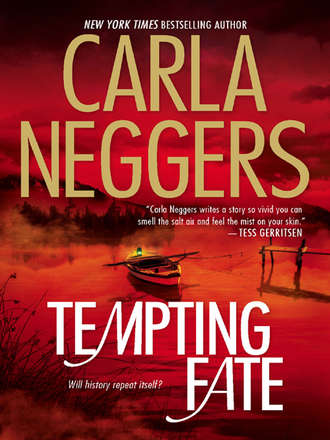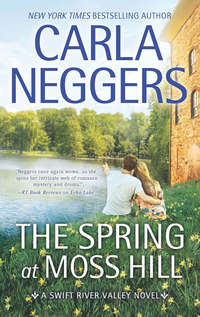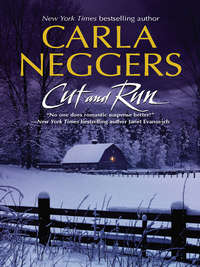
Полная версия
Tempting Fate
With a trembling hand she set aside the obituary of her father from the Cedar Springs Democrat that Joe Cutler had sent her, and the letter she’d received from his commanding officer telling her of Joe’s death three years later, because Joe had asked him to. That was before Quint Skinner, that snake, had written his book.
She came to the photograph Joe had taken of Lilli and herself going up in the balloon that warm, clear August night. “I thought you’d want it,” he’d written.
Mattie switched on her clock radio, just to have something to listen to. Frank Sinatra was singing.
“There’s nothing romantic between Nick and me,” Lilli had assured her mother-in-law during their balloon ride over Saratoga. “I’m not infatuated with him or anything like that—it’s just that no one understands me the way he does.”
Mattie had known exactly how Lilli felt, and she’d tried so hard to explain. “Darling, it’s not that Nick understands you—it’s that he’s willing to let you be whoever you want to be. He demands it. He’s a rare man in that he has no expectations of you whatever.”
On the flip side, Nick had no expectations of himself, either. For a woman who’d based her goals and ideas on the expectations of others—parents, husband, society—being exposed to Nicholas Pembroke’s talent and vision and enthusiasm for life, his love of freedom without responsibility, could be an enormously liberating and intoxicating experience. But there were costs. Always there were costs.
For Mattie, those costs had been her home and family. To be free, she’d had to leave them behind all those years ago. There had been no opportunity for compromise, no possible middle ground. Yet even after six decades, the pull of home and family on her remained strong. Every day something would catch her off guard and trigger a memory of her stern father, of her dark-eyed little sister, of the people and oak-lined streets of Cedar Springs. Mattie didn’t regret her choices. She treasured her independence, her good years with Nick, their son, the work she’d done, the life she’d made for herself in New York. She’d had time to put the costs of her freedom into perspective.
Had Lilli discovered, too late, what those costs would be for herself?
Frank Sinatra stopped singing.
Mattie stared at the photograph. At Lilli’s smile. At the gold key hanging from her neck. Joe had given it to her.
How had it ended up on the Pembroke estate for Dani to find so many years later?
“Nicholas Pembroke is an extraordinary man,” Mattie had told Lilli. “I’d be a liar if I tried to tell you otherwise. The good Lord only knows where I’d be if he hadn’t decided to go fishing in Tennessee way back when. But, Lilli, Nick can’t save himself, much less anyone else. Darling, I know what it is to want to be free.”
“At my age you were already a legend.”
Mattie had tried to explain. Her acting had had its rewards, but fame was a strange thing. Mattie wasn’t famous to herself, but to other people—people she didn’t even know. She couldn’t get inside their heads. Back at the height of her fame, she’d disguised herself and sneaked into a theater playing one of her films, but still couldn’t get inside the minds of those strangers watching her and be a part of her own fame. And Mattie had realized she was only herself. She wasn’t what other people thought of her.
Lilli had shaken her head, as if at her own shattered dreams. “I’m thirty, and I’ve done nothing at all with my life.”
Which wasn’t true. Lilli Chandler Pembroke had given as much of herself to her daughter and husband as any woman could be asked to give. She was a tireless volunteer, a wonderful sister, a devoted daughter. She managed a large apartment in New York and a house in the country, and had taken over as Chandler hostess admirably since her mother’s death. But she’d wanted more. And who was Mattie to tell her she couldn’t have it?
Aching and tired, more depressed than she’d felt in years, Mattie replaced the photograph in her Bible. She’d never shown it to anyone, not even Dani. Few people knew about Joe and Zeke Cutler’s trip to Saratoga that summer. Certainly not her granddaughter. Mattie hadn’t told her. Nor had she ever sat Dani down and explained about the little sister she’d left behind in Tennessee, the half-crazy father who’d died a long, tortured death. About her own ambivalent feelings about her hometown and her childhood there.
Dani would be surprised and hurt. She thought her grandmother had no secrets from her.
The problem was, she had too many.
Four
With her bare feet propped up on the teak umbrella table in the garden behind her gingerbread cottage, Dani regarded Sara Chandler Stone with reasonably good humor. “Tell me, Sara, have you ever been on Pembroke property before?”
Her aunt didn’t answer. So far she hadn’t said much. She’d slipped into the garden while Dani was enjoying a bottle of Pembroke Springs Mineral Water after a late-afternoon stint of weed pulling. She’d offered Sara a bottle. Sara had refused politely. She was a tall, slender woman, with tawny hair cut into a classic bob and pretty, rich blue eyes and a slightly uptilted chin. She’d just come from the races and had on a raspberry-flowered dress, very feminine, with raspberry heels and a long raspberry scarf tied around her straw hat. Dani herself had on gym shorts and a T-shirt. But her aunt—her mother’s younger sister—was the quintessential Chandler heiress, everything her niece made no attempt to be, couldn’t have been even if she’d tried.
“I received your note.” Sara was as icily polite as only a Chandler could be. “You really are coming tomorrow?”
“I really am.”
“Well, that’s wonderful, of course. We’re delighted. I only hope—” She smiled, cool and gracious. “You do understand how much the hundredth anniversary of the running of the Chandler Stakes means to Father.”
“And seeing how Mother ruined the seventy-fifth by so inconveniently disappearing, I’d better not make a scene.”
Sara reddened, inhaling sharply. “I didn’t mean that.”
Dani felt a stab of guilt, having forgotten—or simply not consciously reminded herself—that hers wasn’t the only loss, that her aunt had lost a sister. She dropped her feet to the stone terrace, warm in the afternoon sun. “I know you didn’t. Don’t you want to sit down?”
“I can’t stay—we have a dinner party this evening. I just wanted to be sure that the note was in fact from you, that it wasn’t some sort of cruel practical joke. This is such a sudden change of heart on your part—although of course we welcome it—and I know you’re very busy.” She paused, looking around at the cracked marble birdbath that stood in the midst of the myrtle, at the hundreds of marigolds Dani had planted. There were perennials, flowering shrubs and trees, herbs, more annuals, all enclosed by a tall Victorian wrought-iron fence. “I saw the article on you.”
Dani winced, taking another sip of her mineral water. The bottle was a handsome proprietary design of evergreen-colored glass, with a distinctive long slender neck and an ornate P engraved on one side. The label was a design Dani particularly loved: a red kite floating above a pine grove. Eugene Chandler—her grandfather, Sara’s father—considered her use of Pembroke for her profitable, visible company just one more example of his only grandchild’s thumbing her nose at him.
“I didn’t mention you or Grandfather,” she said. “Or my mother.”
“You didn’t have to. Any article on you will dredge us up no matter what you say or don’t say. Having all that…history come out now is painful.”
Dani refused to feel guilty. The interview had been on the spur of the moment, and she wasn’t supposed to do anything on the spur of the moment. She had too many responsibilities. She was half Chandler. She had a missing mother. Even Ira Bernstein had offered his two cents, threatening to take up a collection to buy her new sneakers. Her sneakers hadn’t even been in the photograph of her. “The holes,” he’d said, “were implied by the rest of your ‘outfit.’”
There was no pleasing anyone anymore.
“It’s not as if our ‘history’ isn’t already on people’s minds,” Dani said. “It’s the hundredth anniversary of the Chandler Stakes, the twenty-fifth of my mother’s disappearance—people will talk, even if we don’t.”
Sara straightened. “I’m not a fool. I might not run a company, but that doesn’t mean—” She stopped abruptly, replacing the demure stance, the stiff, polite smile with the look of a well-bred Chandler. “Let’s not argue. Father’s delighted you’re coming tomorrow—Roger is, too.” Her smile broadened at the mention of Roger Stone, her husband, and seemed genuine. “So am I.”
Dani almost believed her.
After her aunt left, Dani didn’t return to her flower beds, but propped her feet back up on her umbrella table and contemplated the blue sky, felt the cool afternoon breeze against her skin. Something must not be quite right in her head, she thought. Otherwise she’d have told her aunt that she’d changed her mind and wouldn’t be attending the annual Chandler lawn party tomorrow night after all.
“Dani, you back here?”
She recognized Kate Murtagh’s voice even as her six-foot-tall, blond, gorgeous friend barreled through the gate at the far end of the garden. Kate marched up to the stone terrace. She had on an inexpensive chambray dress, her long hair held back with a jade-and-rose-colored scarf; she didn’t even have to work at looking stunning.
“Do I take it from your auntie’s stiff-upper-lip exit that the rumors are true and you’re going tomorrow?”
Dani shrugged. It didn’t surprise her there were rumors or that Kate Murtagh had heard them. She was one of Saratoga’s most sought-after caterers. She’d even landed the Chandler lawn party for the first time, in spite of her long friendship with Dani.
“It’s going to be all over the gossip columns, you know,” Kate said. She was clearly on one of her tears. “Are you prepared for that kind of publicity?”
“People will say what they say.”
“Oh, indeed they will. In my opinion—” not that Dani had asked “—things have gotten too quiet between you and your grandfather. You’d rather have him fighting with you than not paying any attention at all.”
Dani deliberately didn’t answer. Everyone, including her friends, seemed to have a theory about her relationship with her mother’s family.
Kate sighed. “What’re you going to wear to this shindig?”
“Is that the real reason you’re here?”
“You know you can’t be trusted to pick out a party dress on your own.”
Dani laughed but was already on her feet, leading Kate through the back door into her cottage’s small, charming kitchen. As always, her friend had to take a minute to shudder. “I have nightmares about this kitchen.”
“You just have unrealistically high standards.”
“Like a fully functional stove and a refrigerator that postdates Donna Reed?”
“Picky, picky.”
“And counters,” Kate added.
“The kitchens at the inn are state-of-the-art—”
“So?”
Dani pushed through the dining room, hoping to circumvent one of Kate’s lectures on how she should scrimp a little more on her companies and a little less on herself.
“I don’t know how you live like this,” Kate grumbled, following Dani upstairs.
She’d kept the small back bedroom she’d used during stays there as a child, leaving the larger front bedroom for Mattie’s increasingly rare visits. Its leaded-glass windows and view of the garden made up for its size and meager furnishings. Dani had cleared out the junk and old furniture that had gathered over the years, then painted the walls a fresh white. She’d added an antique chestnut bureau and a cherry bed she’d covered with a flower-garden quilt and an old woolen blanket from a mill in Mattie’s hometown in Tennessee.
Kate immediately went to the closet, giving an exaggerated groan when she opened the door. “Is this it? Don’t you have stuff in other closets in the house?”
“No.”
“What about your apartment in New York?”
The biggest closet in her three-room apartment was half the size of her one here. Kate had never been to her apartment. She hated New York.
“It’s bursting with gowns and furs,” Dani said, straight-faced. “I have entire drawers filled with diamonds, sapphires, silk scarves—one whole closet just for shoes.”
Kate scowled over her shoulder. “Very funny.”
With a brave sigh, she plunged into the closet. Dani flopped down on her bed, convinced that Kate, with her unerring sense of style, would come up with something. She could turn heads in a five-dollar flea-market rag.
There wasn’t a sound from inside the closet.
Finally Kate emerged with static hair and a grim look. “It’s bad,” she said.
“Sometimes I wish I were as rich as people think I am.”
“You could have been. It was your idea to tell your grandfather to shove your Chandler trust up his rear end.”
“I wasn’t that blunt.”
“Doesn’t make any difference. The way the Pembroke’s going and with mineral water and natural sodas all the rage, you’ll be rolling in money before too long. Which will no doubt drive you crazy, and you’ll buy some moribund company to gobble up your cash.”
“Have you been talking to Ira?”
“You always need a challenge in front of you. Worse thing for a Pembroke is to have everything he or she wants.” She waved a hand. “Anyway, money isn’t the reason you don’t have anything to wear tomorrow. Much as you’d like to pretend otherwise, you’re no pauper. The only reason you don’t have anything to wear is because you won’t buy anything. When’s the last time you wore an evening gown?”
“The works?”
“Yeah, the works. Floor-length, jewels, hair done, heels, gloves.”
“I don’t do gloves.”
“Come on. When?”
Dani sighed. She remembered. Oh, Lord, did she remember. “Five years ago. On December sixteenth, to be exact.”
Kate stared at her, annoyed.
“No, I’m serious. It was Beethoven’s birthday. I had a date.”
“Well, then, no wonder you remember.” Her sarcasm was a none-too-subtle slam on Dani’s notoriously inactive love life. “Where did you go?”
“To a charity ball, of all things. Unfortunately I didn’t get the details on where it was and who was throwing it. I almost croaked when this guy drove right up to the New York Chandler.”
“Granddaddy and Aunt Sara were there?”
“Bejeweled and not expecting me.”
“They kick you out?”
“That would have been too crass. They were sickeningly gracious. Turned out my date—unbeknownst to me—worked for Chandler Hotels. He was new in town, brought in from Hawaii, and was unaware of my relationship with that side of my family. Thought I was his ticket to the top. Little did he know.”
“So that’s why you now have guys submit their résumés before you’ll go out with them.”
Dani shot her friend a look. “The man was a heel, Kate.”
“Yeah, well, heels do exist.” She got back to the point. “But you did wear an honest-to-God evening gown?”
“Black velvet with sequins. Low-cut. Very expensive. Even my grandfather approved.”
Kate looked as if she was trying to picture it. “Still have it?”
“Somewhere. I keep it around as another reminder of what being a Chandler and a Pembroke’s all about.”
Ever pragmatic, Kate said, “Well, velvet’s too heavy for August anyway. Why don’t you go into town and buy something. Little dresses are always in. Come on, Dani. You know clothes. You just don’t like to spend money on anything you might wear for fun. And—as you well know—you wear little dresses all the time. Just make it short and close-fitting and over forty dollars and you’ll be a hit. You’ve got a flat stomach and great legs.”
Dani frowned. “I don’t have time for a full-fledged shopping trip before tomorrow. Isn’t there something in there I could dress up?”
“No.”
“You could have hesitated.”
“Look.” Kate wasn’t about to give up. “Why not rent a dress. People do it around here in August all the time.”
Dani jumped off the bed. “I must have been crazy to accept that invitation, but I refuse to back down now, just on account of not having anything to wear. Don’t you have something you could lend me?”
“You’d look like a little kid dressing up in her mother’s clothes.” Kate winced at her faux pas, as if Lilli Chandler Pembroke had disappeared yesterday and not twenty-five years ago and all Dani’s wounds were still raw. It was a reaction Dani often received, even from her best friends. “I’m sorry—I know tomorrow won’t be easy for you.”
“Forget it. Actually, you’ve just given me an idea. I knew I could count on you. See Ira before you leave for a bottle of champagne. Your choice. You and your people will deserve to celebrate after pulling off tomorrow night.”
“Thanks,” Kate said. “Believe me, we’ll need to unwind. Your auntie’s a great big pain in the butt, if you’ll pardon my saying so—but she’s ever so sweet. Kills you with a look and twenty polite demands, if you know what I mean.”
“A Chandler lady never raises her voice.”
“No wonder you don’t fit in with that crowd.”
“Shouldn’t you be julienning zucchini or something?”
But Kate’s expression suddenly turned serious. “Dani, are you sure you know what you’re doing?”
She smiled. “No.”
“Look—”
“It’s okay, Kate. I don’t know exactly why I’m going this year. It’s true my grandfather and I have maintained an undeclared cease-fire in the last few years—mainly by each pretending the other doesn’t exist. But it’s August in Saratoga, and I’m here. I can’t ignore that I’m half Chandler.” She paused. “Neither can my grandfather.”
Kate stared at her for a few seconds, then threw up her hands. “Go for a little dress. You’ll look great.”
Not long after Kate left, Dani headed to her attic and pulled the string attached to the naked seventy-five-watt bulb at the top of the steep stairs. The air was hot and musty, the rough wood floors crowded with old kites and abandoned projects, college textbooks on subjects she barely remembered taking and a thousand-piece puzzle of a castle in Germany she and Mattie had put together one rainy July weekend. There was a vase she’d made in the first grade from an old liquid-detergent bottle for Mother’s Day; she had no idea how it had landed in Saratoga.
It was an attic of memories, but most attics were.
Pushing past overflowing cardboard boxes, she knelt on the dusty floor in front of a huge old Saratoga trunk. It had belonged to her great-great-grandmother, the intrepid Louisa Caldwell Pembroke. She’d been a survivor. Just twenty when she’d married Ulysses, she’d never been a real part of the extravagance—the notorious capitalistic excesses—of Saratoga in the last decade of the nineteenth century. But she’d fallen in love with a gambler, had known Diamond Jim Brady, the onetime bellhop who’d become a millionaire, and Lillian Russell, the voluptuous singer whose cocker spaniel Mooksie had a collar made of diamonds and gold. Louisa had been in Saratoga when Joseph Pulitzer sent Elizabeth Cochrane—“Nellie Bly”—to the upstate spa to write her famous exposés for his New York newspaper. One had been on Ulysses Pembroke’s oddball, money-eating estate.
The Saratoga trunk was now a valuable antique. Train conductors had despised their curved lids because they made stacking them difficult.
Dani threw open the trunk. On top was the frayed, moth-eaten fox stole Mattie Witt had worn in The Gamblers. It’d probably sell for a fortune. Gently pushing it aside, Dani dug through layers of dresses, scarves, old shoes, gloves, crushed hats. Things from Mattie, things from her mother. She felt the tears on her cheeks and angrily brushed them away. She had no business crying. The past was the past. She’d carved out a niche for herself separate from the self-destructive Pembrokes, the celebrated Mattie Witt, the lost Lilli Chandler Pembroke. She’d moved forward with her life and had learned to live in the present.
She’d learned to stay out of attics.
Refusing to knuckle under to self-pity, she got on with her task.
Deep in the trunk, she found the dress.
It was red and sleek and perfect. Mattie had worn it in Tiger’s Eye, the movie that had transformed her from an overnight sensation into a star.
Dani dug even deeper and produced the ostrich plume.
Rolling back on her heels, she held it up to the dim light. I must be out of my mind. Dyed red to match the dress, it was an integral part of Mattie’s glamorous look. Dani had never in her life worn a feather in her hair.
It’s my Pembroke genes. I don’t know what the hell I’m doing.
And she couldn’t stop herself.
The plume was squashed from having been stuffed in the trunk, but otherwise in good shape.
Would anyone at the Chandler lawn party recognize it?
Oh, yes.
In her unforgettable scene in Casino, Lilli Chandler Pembroke had worn Mattie’s ostrich plume. Nick had said she’d meant it as a tribute to her mother-in-law, a symbol of independence and freedom to Lilli and to millions of women.
Maybe Kate was right, Dani thought, and she ought to dust off her checkbook and go to town and buy a dress.
If no one else recognized the dress Mattie Witt had worn in one of her most famous roles, the feather she and Lilli both had worn, the Chandlers certainly would. And they’d know—as perhaps Dani meant them to know—that it was yet another of her attempts to force them to confront their image of who she was. To remind them she’d always fight that image. To show them she was determined, and would remain determined, to be herself.
She closed the lid of the trunk and rose stiffly, then pulled the string on the lightbulb and carried the dress and ostrich plume downstairs. She got a hanger from her closet, shook the dress out and hung it on a curtain rod in the bedroom window. Perhaps the clear light of day would make her change her mind.
It’d have to be cleaned. And she’d have to buy shoes. Preferably red. No. Definitely red.
She could wear her gold key with it. Maybe the scarred old brass one, too.
Eyeing it, she debated. Had the clear light of day helped her change her mind?
Nah. It was a great dress.
As far as Zeke could tell, the Pembroke “experience” could be anything from quiet, healthy luxury with a nutty twist to something approaching marine boot camp.
He didn’t care. He just wanted his experience to be brief.
He’d been put in a small room on the third floor with twelve-foot ceilings, a window seat, rose-flowered wallpaper and a jewel-colored crazy quilt on a brass queen-size bed. There was a marble-topped dresser and a needlepoint-cushioned chair he didn’t think he was supposed to sit on.
There was no beer in the tiny refrigerator, just a six-pack of Pembroke Springs Natural Orange Soda. He opened up a bottle. It was clear glass with a pale green label featuring a kite floating above a stand of birches. What kites and birches had to do with natural soda Zeke didn’t even want to speculate. He took a sip. It wasn’t as syrupy as regular orange soda, but it was still soda.
He examined a brochure. If he wanted to, he could take hang gliding lessons, climb rocks or show up on the front lawn at the crack of dawn for a hot-air balloon ride. There were quilting bees on the “north porch.” Nature walks. Kite-making and kite-flying lessons. Tubing expeditions on the Batten Kill. “Handson workshops” in the many flower, herb and vegetable gardens. Zeke took them to be weeding sessions. He could soak in mud if he wanted to. Get scrubbed, clipped, polished, deep cleaned and massaged. He could jog. Ride a bike. Climb a mountain. Tour Saratoga. Go to the races. Shop. Take in a concert at the Saratoga Performing Arts Center, a lecture at Skidmore College.
He could, if he chose, pick wild blueberries and make his own jam.
Only a Pembroke could get people to pay good money to do something they could do for free. Did Dani Pembroke have her guests do their own sheets as well? Beat them against rocks like in the old days?









